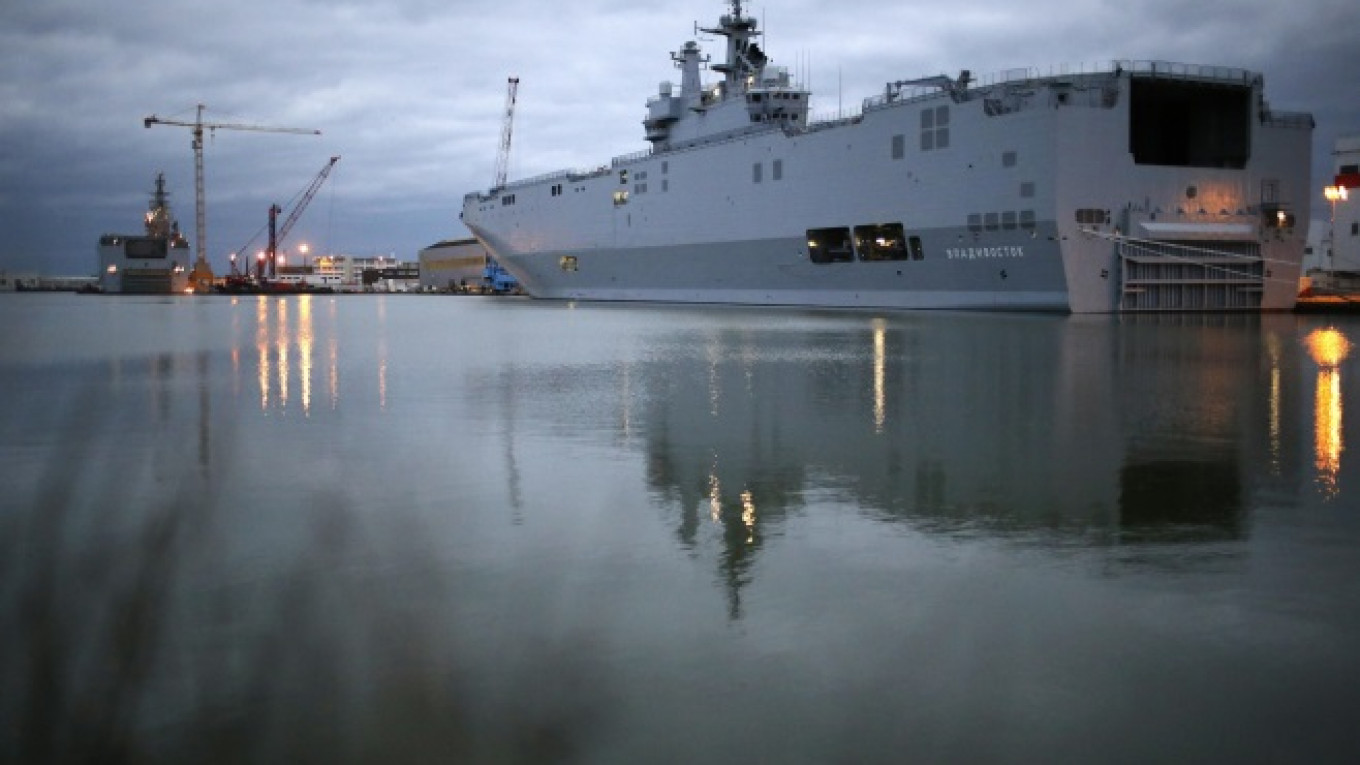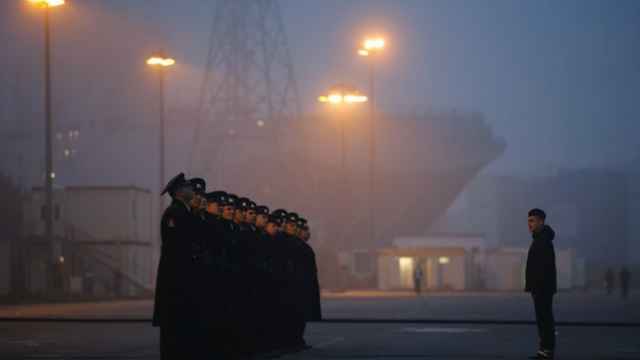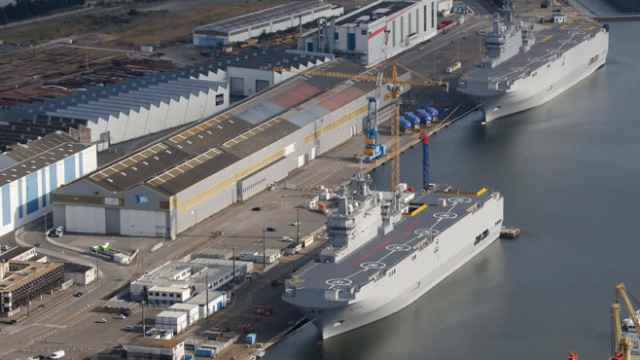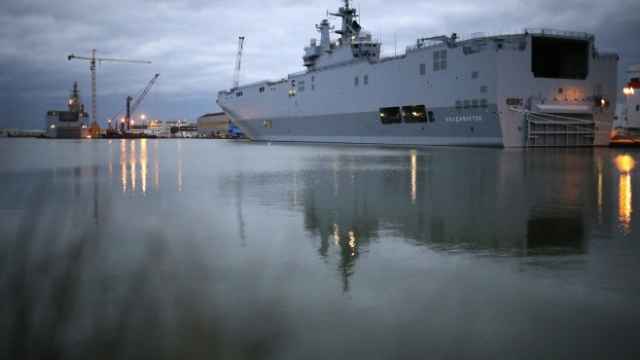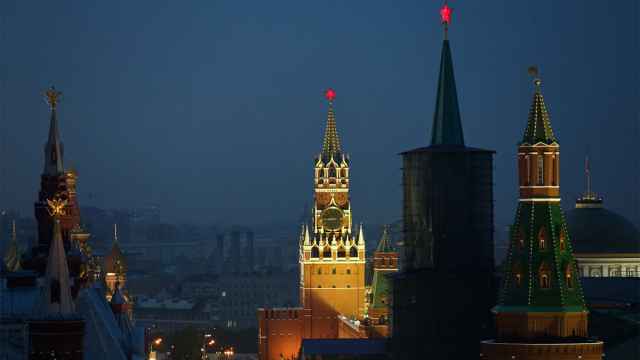State-backed French naval shipbuilder DCNS is spending at least 1 million euros ($1.1 million) a month to hold on to two Mistral helicopter carriers that were sold to Russia in a deal now being reversed, its chief executive said on Thursday.
The fate of the two completed ships, moored in Brittany, has been uncertain since French President Francois Holland came under pressure from Western allies not to deliver the Mistrals because of Russia's role in the Ukraine crisis.
The costs of keeping the warships in good condition while their future is discussed at a diplomatic level are being absorbed by DCNS, 35-percent owned by defence group Thales and 64 percent by the French state.
But the shipbuilder may try to recover the costs from French export insurance agency Coface once the governments reach a decision, DCNS Chief Executive Herve Guillou said.
"It is upwards of one million euros a month," he told a news conference, asked to estimate the costs of their upkeep.
Those costs could rise if the warships are left idle long enough to force DCNS to start replacing some of their onboard systems to keep them up to date, he said.
He declined to comment on possible alternative export destinations for the two ships. Canada and Singapore have been mooted, as has Egypt which has just bought French fighter jets and naval frigates.
Russia is said to be seeking some 1.16 billion euros in compensation for a cancellation of the deal.
Loss-making DCNS is aiming to boost revenues by two thirds to 5 billion euros within 10 years, Guillou told a news conference on the company's turnaround plans. Half of these revenues would be generated internationally and 15 to 20 percent in renewable energy, he said. DCNS has activities in marine-based energy, including offshore wind.
The maker of submarines and warships, which had 3 billion euros of sales in 2014, said it was aiming for 5 percent operating margin in three years as part of its "progress" plan after a return to break even already promised for 2015.
Long term, Guillou said it would aim to keep pace with the strongest performers among its peers, which generate up to 8 percent margins. DCNS posted a loss of 336 million euros in 2014 after provisions on loss-making contracts.
Guillou denied a report in French newspaper La Tribune of tensions with Thales over the speed at which the company should invest in its future growth or tackle immediate losses. But he acknowledged there had been "normal" discussions on the issue.
He said the group aimed to widen its international activities beyond Brazil, Malaysia and India.
He also said DCNS had an "excellent chance" against Japan and Germany in a bidding process to build stealth submarines for Australia.
A Message from The Moscow Times:
Dear readers,
We are facing unprecedented challenges. Russia's Prosecutor General's Office has designated The Moscow Times as an "undesirable" organization, criminalizing our work and putting our staff at risk of prosecution. This follows our earlier unjust labeling as a "foreign agent."
These actions are direct attempts to silence independent journalism in Russia. The authorities claim our work "discredits the decisions of the Russian leadership." We see things differently: we strive to provide accurate, unbiased reporting on Russia.
We, the journalists of The Moscow Times, refuse to be silenced. But to continue our work, we need your help.
Your support, no matter how small, makes a world of difference. If you can, please support us monthly starting from just $2. It's quick to set up, and every contribution makes a significant impact.
By supporting The Moscow Times, you're defending open, independent journalism in the face of repression. Thank you for standing with us.
Remind me later.


